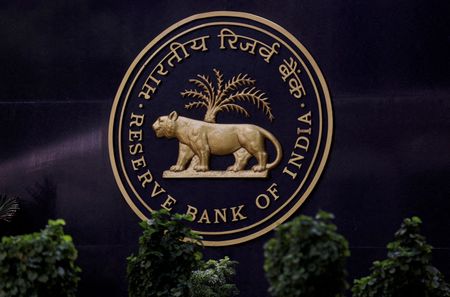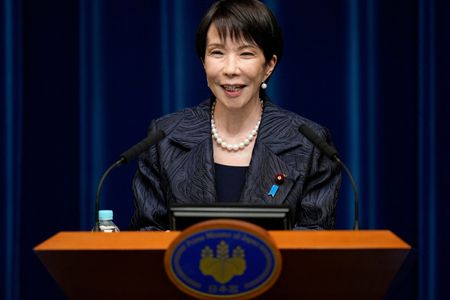By Jamie McGeever
(Reuters) – A look at the day ahead in Asian markets.
India’s central bank interest rate decision grabs the spotlight in Asia on Friday, as investors digest yet another record high for the Nasdaq and adjust positions ahead of the weekend.
The U.S. employment report for November later in the day is released after Asia closes, so investors across the continent may be inclined to square positions as best they can in preparation for Monday.
The main event in Asia on Friday is in India. The Reserve Bank of India is overwhelmingly expected to hold its key repo rate at 6.50%, after a sharp rise in inflation past the RBI’s 6% tolerance ceiling in October prompted many economists to push back their forecasts for the first cut to early next year.
With the rupee at record lows against the dollar, standing pat makes sense. But economists at Nomura, one of the five out of 67 houses in the Reuters poll predicting a rate cut, argue that weakening growth dynamics must be taken into account now.
Although the rupee has never been weaker, benchmark bond yields are at their lowest in almost four years, Indian stocks are lagging many of their regional peers, and the economy is growing at its slowest pace in nearly two years. Maybe the RBI should start the easing cycle sooner rather than later?
Investors go into the final trading session of the week against a relatively calm global backdrop, all things considered. Any market impact from the political ructions in South Korea and France appears to be fading and contained, and the dollar’s dip on Thursday will be welcomed too.
The dollar fell 0.5% on Thursday. It’s probably too early to read anything too deeply into it, but that was its third down day in a row, a losing streak not seen since September. It will take more than that – perhaps a return to the September lows, around 5% below current levels – to really call into question the dollar’s resilience, but could fatigue be setting in?
Fatigue is something the U.S. economy doesn’t seem to be showing any signs of yet. The Atlanta Fed on Thursday raised its GDPNow model estimate for Q4 growth to a remarkable 3.3%. As investors fret about growth in Europe, China and many other key economies around the world, America appears to be the exception that continues to prove the rule.
This is a double-edged sword for Asia. On the one hand it’s clearly good news as booming U.S. markets should lift all others. But if it lifts the dollar and Treasury yields, then global financial conditions tighten and capital is sucked towards the US.
Indeed, net selling of Asian equities by foreigners in November was the highest since June 2022.
Here are key developments that could provide more direction to markets on Friday:
– India rate decision
– Japan household spending (October)
– South Korea current account (October)
(Reporting by Jamie McGeever; Editing by Deepa Babington)







